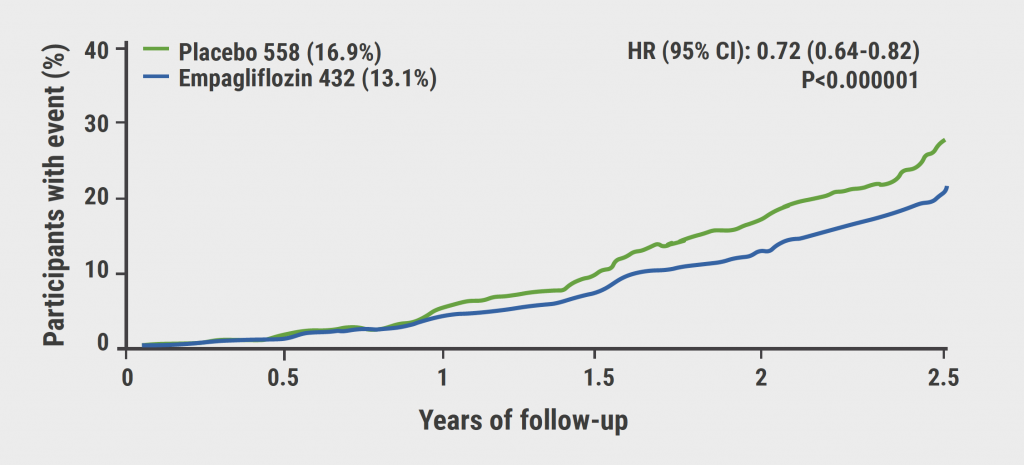A Dutch study presented by Dr Anissa Pelouto (Erasmus Medical Center, Rotterdam, the Netherlands) aimed to determine whether the standard (guideline recommended) bolus administration of hypertonic saline (150 or 100 mL) for hyponatraemia leads to overcorrection, especially in people with a lower BMI, as overcorrection in chronic hyponatraemia patients can be harmful. Correction of symptomatic hyponatraemia is a delicate balance; it must occur quickly enough to prevent cerebral oedema but slowly enough to prevent osmotic demyelination syndrome. Data was analysed from 183 patients who had received a bolus dose for hyponatremia at Erasmus MC between July 2017 and July 2021. Overcorrection was defined as an increase in the serum sodium level by greater than 12 or 18 mmol/L within 24 or 48 hours, respectively. Overcorrection occurred in 20% of patients; the overcorrection rate was significantly higher in patients with low BMI compared to patients without low BMI (37% vs 14%; P<0.001). “We also found that BMI was independently associated with overcorrection,” Dr Pelouto added. She concluded by recommending volume adjustments in patients with low BMI [1].
- Pelouto A, et al. One Size Does Not Fit All: Real World Data on the Safety of Bolus Hypertonic Saline for Symptomatic Hyponatremia. FR-OR49,ASN Kidney Week 2022, 3–6 Nov.
Copyright ©2022 Medicom Medical Publishers
Posted on
Previous Article
« Lowering blood pressure intervention favourable for CV outcomes Next Article
Selonsertib poses risk of AKI in patients with DKD »
« Lowering blood pressure intervention favourable for CV outcomes Next Article
Selonsertib poses risk of AKI in patients with DKD »
Table of Contents: ASN 2022
Featured articles
Chronic Kidney Disease
VALOR-CKD trial did not show any benefits for veverimer
EMPA-KIDNEY: empagliflozin slashes kidney disease progression or CV death
Combining UACR and GFR improves prediction of drug effect in CKD phase 2 trials
Dapagliflozin reduces number of hospitalisations in patients with CKD
Novel MSC therapy appears safe and effective in preventing decline in eGFR
Dapagliflozin improves anaemia in patients with CKD with or without T2D
Kidney Transplantation and Dialysis
Balanced crystalloid solution better for deceased donor kidney transplantations
Modified donor blood cells seem a promising option in kidney transplant recipients
Cooler dialysate does not offer any clinical benefits
Antiviral effect of MAU868 against BK virus prompts further research
General Nephrology
Medication-targeted alerts for the risk of AKI
Coaching with a DASH diet improves albuminuria
Cemdisiran shows promise in IgA nephropathy
Long-term nephroprotective effects of sparsentan in FSGS
Encaleret normalises mineral homeostasis in patients with ADH1
Adding voclosporin to MMF and steroids results in long-term higher CRR in severe lupus nephritis
Selonsertib poses risk of AKI in patients with DKD
Significantly higher risk of overcorrection in hyponatraemic patients with standard bolus infusion
Lowering blood pressure intervention favourable for CV outcomes
© 2024 Medicom Medical Publishers. All rights reserved. Terms and Conditions | Privacy Policy


